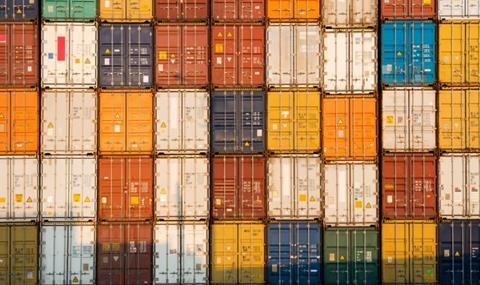
Ongoing capacity problems at some of the UK’s largest ports has occurred because of the three ‘Cs’ – Covid-19, Christmas and Customs, according to Logistics UK, which warned that delays could persist for months.
Following Honda’s decision to halt car production at its Swindon plant due to what it described as a parts delay, construction industry trade body BMF said it was investigating claims that building products shipped in containers from the Far East were also struggling to get into the UK.
Logistics UK said the issues have arisen because the pandemic had caused “unprecedented volatility in the supply chain”.
Zoe McLernon, Logistics UK’s policy manager said: “Not just in the physical supply of goods from around the world, but also in changing the way consumers purchase products.
“Add to this the increased seasonal pressures caused by the Christmas retail market, and businesses stocking up ahead of the introduction of customs controls at the end of the transition period, and the pressure on the supply chain is immense.”
The port of Felixstowe said it was still experiencing a spike in container volumes and dealing with the consequences of Covid-19, “like other major container ports worldwide,” it said in a statement.
“In addition we have had a high number of slow moving containers of PPE occupying storage space.
Read more
- RHA condemns “outrageous” delays at Felixstowe Port and calls on owners to act
- Felixstowe port “fully operational” but high container volumes may last into 2021
- Congestion problems at Felixstowe Port need government intervention, says BIFA
“The current high volumes are expected to last into the New Year and we are working hard to minimise the impact on daily operations and to maintain vital supply chains.”
However, it also said the port was fully operational and added: “We are increasing resource, 104 additional equipment drivers plus a number of engineers in support roles are being recruited and trained.”
John Newcomb, BMF chief executive, said concern was growing among its members over the availability of products such as ironmongery, plumbing items, tools and natural stone: “There appears to be an increasing issue getting these products through ports, with some ships being stopped from landing and sent back to Rotterdam,” he said.
“Rather than taking a maximum of one week to unload, it is taking up to four weeks.
“We’ve raised this matter with the government and asked about the readiness of ports and customs, as we head into Brexit.”
McLernon said the UK logistics industry was flexible and adaptable, but that it also required the government to play its part by factoring elements such as disruption caused by the end of the transition period into its planning, to enable freight to move freely with minimal delays.
Tim Morris, chief executive of the UK Major Ports Group said the situation at the country’s ports was improving, but it would take time to work through supply chains: “The impact is being felt across the world, including here in the UK,” he added.














